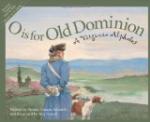Somebody spoke of a secret panel. That sounded well; and even though we were assured that nothing had been found behind it, we went to the south wing to look at the hole in the wall. At one side of a fireplace, a bit of metal had been found under the molding of a panel in the wainscoting. It was evidently a secret spring, but one that had long since lost its cunning; stiff with age and rust, it failed to respond to the discovering touch. In the end, the panel had to be just prosaically pried out. And, worst of all, the dim recess behind it was empty.
When we had peered within the roomy secret space and had wondered what had been concealed there and what hands had pressed the hidden spring, we might really have started for the houseboat if it had not been for the skull story. But there, just underneath a window of the secret-panel room, was another place of secrets. It was a brick projection from the wall of such peculiar form as to have invited investigation. When some bricks had been removed and some earth taken out, a human skull showed white and ghastly. Then, at the touch of moving air, it crumbled away. That was no story to start anywhere on, even in broad daylight; so we had another.
We were taken into the drawing-room and there, sharing honours with the portraits, was a little gold ring hanging high from the chandelier rosette. While not a work of art like one of the canvases on the wall, it has its own sufficient charm—it is a mystery. The dainty gold band has hung above the heads of generations of Harrisons, and somewhere in the long line its story has been lost. Who placed the ring where it hangs, and whether in joy or in grief, nobody longer knows. But it will swing safely there while Brandon stands, for in this ancient house, down the ages undisturbed, come the mysteries and the ghosts.
That evening a wind came up and rain set in from a depressing dark-blue-calico sky. Gadabout did not take the trouble to run back into her creek harbour; but put down a heavier anchor and made herself comfortable for the night in the cove above the Brandon pier. The cradling boat and the patter upon the roof soon put us to sleep. Then something put us very wide awake again. We listened, but there was nothing to hear. The wind had died out and the boat had stopped rolling. In a moment, the long blast of a steamer whistle told what was the matter. In blanket-robe and slippers, the Commodore got quickly to a window, and found the river world all gone—swallowed up in fog.
[Illustration: A corner in the dining—room.]
[Illustration: The drawing-room fireplace.]
Another weird, warning call out of the mysterious, impenetrable mist; the steamer for Richmond was groping her way up the river. To be sure, anchored as we were so far inshore of the channel, we were well clear of the steamer’s course; but in such heavy fogs the river boats often go astray. As succeeding blasts sounded nearer, the Commodore became anxious and, without waiting to turn out the crew, he started for the fog-bell.




